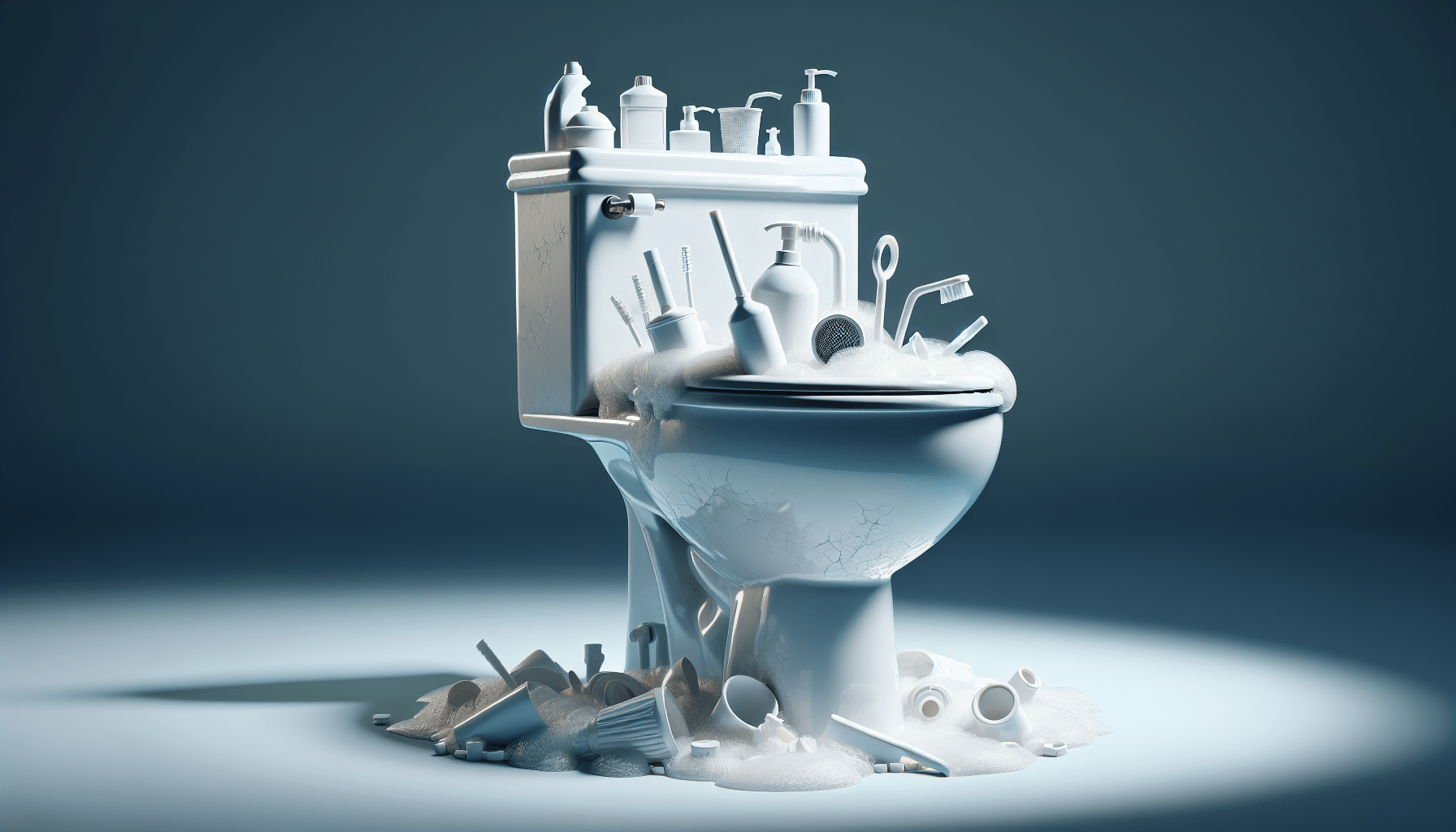Are you curious about the earning potential of plumbers? If so, you’re in the right place! In this article, we will uncover the answer to the age-old question, “How much do plumbers make?” Plumbing is a skilled trade that requires expertise in installing and maintaining various plumbing systems. While the pay scale may vary depending on several factors, such as location and experience, we’ll explore the average salary range that plumbers can expect to earn. So, let’s dive right in and discover the fascinating world of plumbing salaries!
Average Salary of Plumbers
Plumbers play a vital role in our society by ensuring the smooth functioning of our plumbing systems. If you’re considering a career in plumbing, you might be wondering about the average salary you can expect. Well, the good news is that plumbing can offer a lucrative profession with plenty of earning potential. The average salary of plumbers varies based on several factors that we will explore in this article.
Factors Affecting Salaries
Several factors come into play when determining the salary of a plumber. One of the most significant factors is location. The demand for plumbers varies across different regions, which ultimately affects their earning potential. Additionally, experience and certifications also influence the salary range. The more experience and certifications you have, the higher your earning potential as a plumber. Lastly, union memberships can also impact salaries, as unions often negotiate higher wages and better benefits for their members.
Regional Variations
The average salary of plumbers can vary significantly depending on the region in which they work. Generally, urban areas and densely populated regions tend to have higher salaries due to increased demand and cost of living. For example, plumbers working in metropolitan cities like New York or Los Angeles can expect higher salaries compared to those in rural areas. It’s important to consider the regional variation when estimating your earning potential as a plumber.
Experience and Certification
When it comes to plumbing, experience and certifications can have a significant impact on your salary. As you gain more experience in the field, your expertise and skill set will increase, making you more valuable to employers. This increased value often translates into higher wages. Similarly, obtaining certifications such as being a licensed plumber or having specialized knowledge in areas like green energy or medical gas systems can also open up higher-paying job opportunities.
Union Memberships
Joining a trade union as a plumber can provide you with several benefits, including better wages and improved working conditions. Unions negotiate on behalf of their members, ensuring fair compensation and maintaining high standards within the plumbing industry. Union memberships can often result in higher salaries for plumbers, making it a desirable option to consider.
Hourly Wages vs. Annual Salaries
When discussing plumbers’ salaries, it’s essential to understand the difference between hourly wages and annual salaries. Some plumbers are paid on an hourly basis, while others receive an annual salary. Both payment structures have their advantages and considerations.
Hourly Wage Ranges
Plumbers who are paid on an hourly basis typically earn a predetermined rate for each hour worked. The hourly wage range for plumbers can vary depending on factors such as experience, location, and industry. On average, entry-level plumbers can expect to earn around $15 to $25 per hour, while more experienced plumbers can earn as much as $40 per hour or more. Remember, these figures are just estimates and can vary depending on various factors.
Annual Salary Ranges
For plumbers who are salaried employees, their salary is calculated on an annual basis. This payment structure provides the security of a fixed income and may include benefits such as health insurance and retirement plans. The annual salary range for plumbers can start at around $40,000 for entry-level positions and go up to $90,000 or more for those with extensive experience and specialized skills.
Plumbers’ Earnings by Industry
The field of plumbing offers diverse opportunities, and plumbers can work in various sectors. Let’s explore how plumbers’ earnings can vary across different industries.
Residential Plumbing
Residential plumbing involves working on plumbing systems in private homes and residential buildings. In this sector, plumbers can earn a steady income by providing services such as pipe installations, repairs, and maintenance. The average earnings for residential plumbers can vary depending on factors such as location, experience, and client base.
Commercial Plumbing
Commercial plumbing focuses on plumbing systems in commercial properties such as office buildings, shopping malls, and restaurants. This sector often requires plumbers with advanced skills and knowledge due to the complexity of the systems involved. Consequently, plumbers working in commercial plumbing can earn higher wages compared to those in residential plumbing.
Industrial Plumbing
Industrial plumbing involves working on large-scale plumbing systems in industrial facilities such as factories, power plants, and manufacturing plants. This sector often requires specialized knowledge and expertise in areas such as industrial processes and piping systems. Plumbers specializing in industrial plumbing can earn higher salaries due to the unique challenges and technical skills required in this field.
Government and Municipal Plumbing
Working as a plumber in government or municipal sectors provides stability and a reliable income. Plumbers employed by government agencies or working on municipal projects often enjoy competitive salaries and benefits. These plumbers can be involved in maintaining plumbing systems in public buildings, schools, hospitals, and other government-owned properties.
Job Outlook and Growth Potential
The job outlook for plumbers is quite promising, with a steady increase in demand for their services. Let’s explore the factors contributing to increased demand and the growth opportunities available within the plumbing industry.
Increased Demand for Plumbing Services
Plumbing is an essential service that is required in residential, commercial, and industrial settings. As the population continues to grow, so does the demand for plumbing services. Whether it’s installing new pipes, repairing existing systems, or ensuring compliance with building codes, the need for skilled plumbers is on the rise. This increased demand drives the job market for plumbers and contributes to their earning potential.
Growth Opportunities in Renewable Energy
With the growing focus on renewable energy sources, plumbers have new opportunities in this evolving field. Renewable energy systems, such as solar water heating and geothermal heat pumps, require specialized plumbing knowledge for installation and maintenance. By acquiring the necessary skills and certifications, plumbers can tap into this emerging market and expand their earning potential.
Additional Benefits and Perks
In addition to their salaries, plumbers often enjoy additional benefits and perks that enhance their overall compensation package. Let’s explore some of these advantages.
Health Insurance
Many employers provide health insurance benefits for their plumbers, ensuring they have access to medical services and coverage. Health insurance can help alleviate the financial burden of healthcare expenses and provide peace of mind.
Retirement Plans
Plumbing companies often offer retirement plans, such as 401(k) or pension plans, to help plumbers save for their future. These plans allow plumbers to contribute a portion of their earnings, which is then invested and grows over time. Having a retirement plan in place ensures a more secure financial future for plumbers.
Paid Time Off and Holidays
Paid time off and holidays are essential for maintaining a healthy work-life balance. Plumbers often receive paid vacation days and holidays, which allows them to take a break and spend time with loved ones without worrying about lost income.
Bonuses and Overtime Pay
Plumbers who go above and beyond in their work may be eligible for bonuses, which can significantly boost their income. Additionally, plumbers who work overtime hours are often compensated at a higher rate, providing an opportunity for increased earnings.
Average Salaries of Related Occupations
To gain a better understanding of how plumbers’ salaries compare to related occupations, let’s explore the average salaries of a few similar professions.
Pipefitters and Steamfitters
Pipefitters and steamfitters work with pipes that transport liquids and gases. While there is some overlap with plumbing, pipefitters and steamfitters often focus on larger systems such as industrial piping and HVAC systems. On average, pipefitters and steamfitters earn salaries comparable to those of plumbers, with wages ranging from $40,000 to $90,000 annually.
Electricians
Electricians specialize in the installation and maintenance of electrical systems, including wiring and fixtures. Although not directly related to plumbing, electricians often work alongside plumbers on construction projects. Electricians typically earn similar salaries to plumbers, with annual wages ranging from $40,000 to $90,000 or more, depending on experience and industry.
Carpenters
Carpenters are skilled craftsmen who work with wood and other materials to construct and repair structures. While their work may not involve plumbing directly, they often collaborate with plumbers on building projects. Carpenters’ salaries can vary depending on factors such as experience, location, and industry, with average annual earnings ranging from $30,000 to $60,000.
Tips for Maximizing Earnings as a Plumber
If you’re looking to maximize your earnings as a plumber, consider the following tips:
Further Specialization and Certifications
By specializing in niche areas such as green energy systems or medical gas installations, you can position yourself as an expert in a high-demand field. Obtaining relevant certifications in these areas can open up new job opportunities with higher earning potential.
Starting Your Own Plumbing Business
If you have an entrepreneurial spirit, starting your own plumbing business can offer immense earning potential. By building your client base, providing excellent service, and managing your business effectively, you can significantly increase your income as a plumber.
Continuing Education and Training
Plumbing is an ever-evolving field, and staying up-to-date with the latest industry trends and technologies is crucial. By investing in your professional development through continuing education and training, you can expand your knowledge and skills, making yourself more valuable to employers and clients alike.
Conclusion
Plumbing offers a rewarding career with attractive earning potential. Factors such as location, experience, certifications, and industry specialization all play a significant role in determining a plumber’s salary. Additionally, plumbers enjoy a range of benefits and perks, including health insurance, retirement plans, paid time off, and bonuses. By considering these factors and following the tips for maximizing earnings, you can embark on a successful and prosperous career as a plumber.





